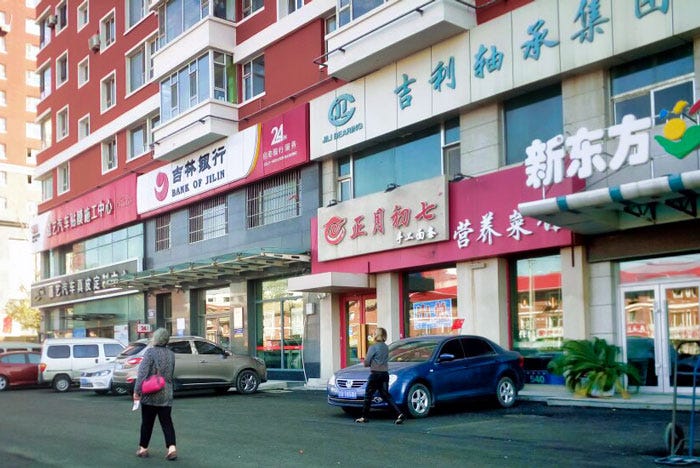
With the kind assistance of a friend, I interviewed the manager of this Chinese condominium in Changchun, China.

We met in his office that is located in a stand-alone building that is situated across a lane-way from the large 14-year old condo complex. He shares his office with two office clerks.
The manager is responsible for a large 390 unit mixed-use condo building that contains two ground level commercial floors that sit under three tall residential towers. There is a tall office section on the north-west side of the large complex.

The condo is in the shape of a rough rectangle with two openings in it to allow for pedestrian traffic and an interior above-ground parking lot. There are underground parking spots under the complex.
The commercial units include a large local government taxation office, retail stores, a fruit store, a small grocery store, a convenience store, a restaurant, a hair stylist and several automobile repair shops.
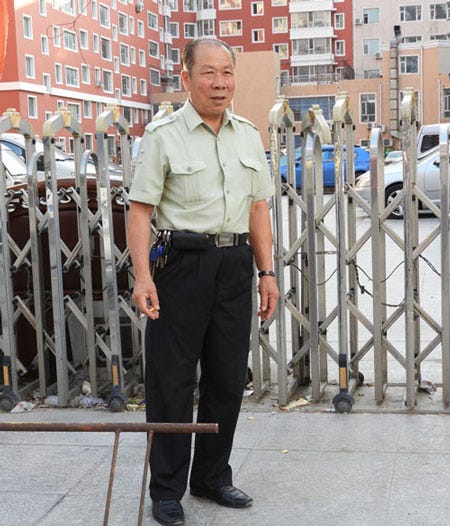
Management is in charge of a team of maintenance men, cleaners and security guards. The security guards work on two shifts and are on duty 24 hours–seven days a week.

The security office sits beside the main pedestrian entrance to the condo complex.
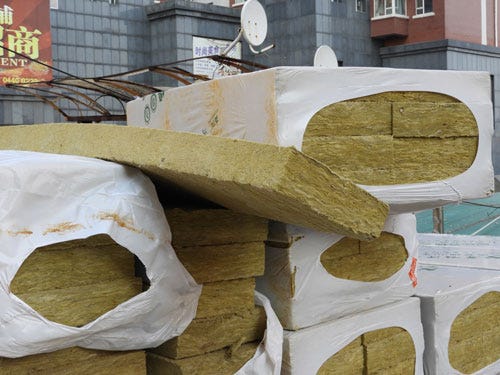
Skids of building insulation to be installed on the condo's exterior walls as part of the government's "Warm Buildings" program sit in the parking lot.

The manager does't have it easy. This abandoned truck has been there for years. It was finally removed in 2018.
This generation must pay
When I was introduced, the manager and the two clerks stood up and gave me an official welcome to their office. Sitting down, he said he would truthfully answer any questions I had.
He told me that he has many duties and he gets lots of complaints. When I asked him what was the most difficult part of his job, he replied:
" In China we have a saying: You must pay for the corruption of all of your ancestors.”
This means is that the present condo owners must pay for all the builder's defects and for the earlier management and owners' deferred maintenance and mistakes.
(I immediately liked this man. He sounded like a philosopher.)
The largest number of complaints? Water leaks. (What else?)
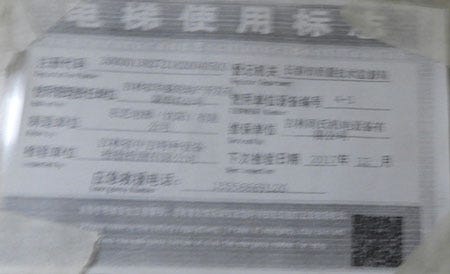
Just like in Canada, elevators need to be regularly inspected.
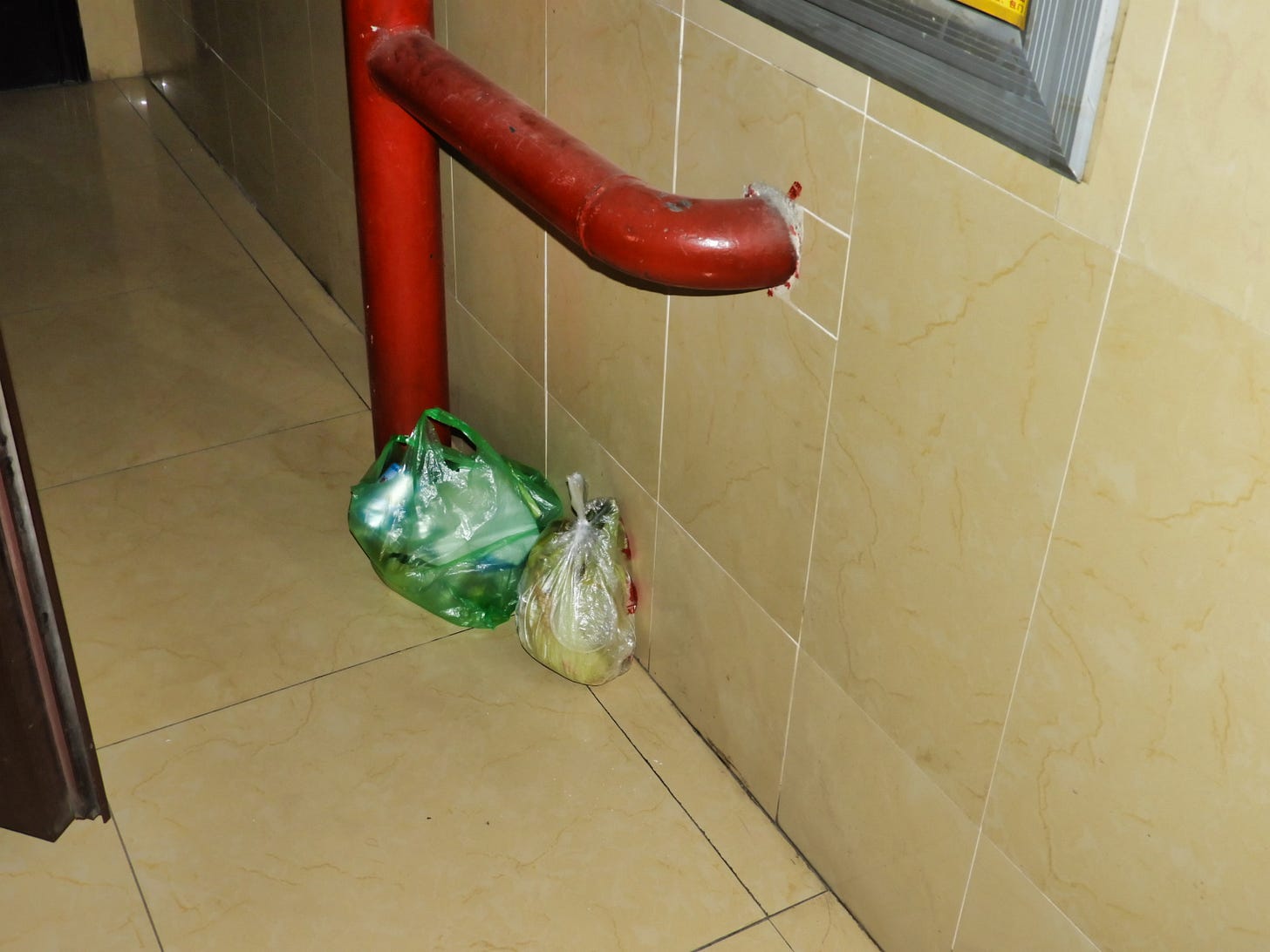
In China, the residents put their garbage in the hallway every day and the cleaner collects them all and put them in the outside larger bins. No need for garbage chute rooms.
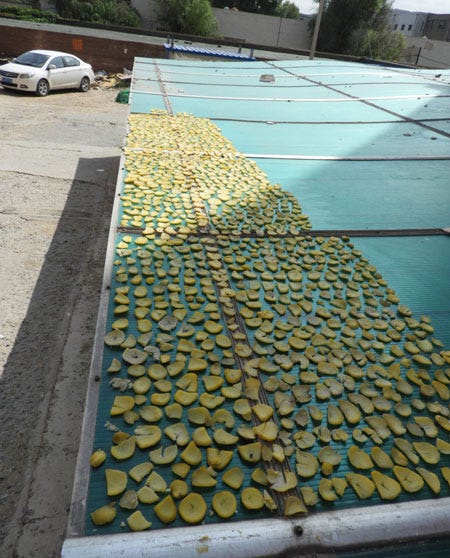
The light panels for the underground parking ramp makes for a convenient place to dry your winter supply of sliced potatoes. People on northern China will also dry onions, turnips, dates and sliced fruits.
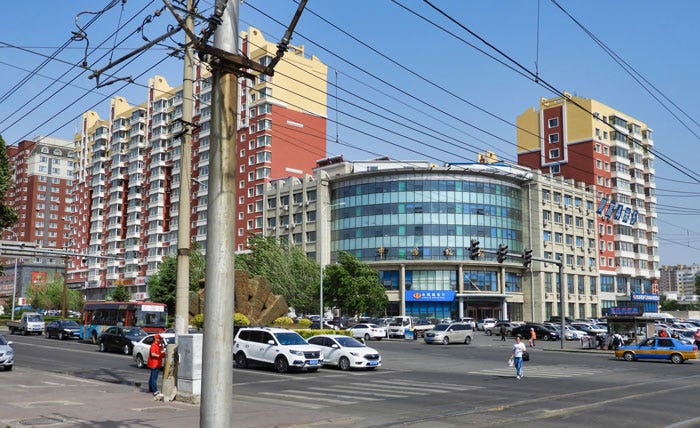
This is a front-view of the mixed-use condominium that the property manager is responsible for.
Apartment Owners' Committee
The manager finds that the Owners Committee is too bossy. There is no direct relationship between the Committee and him because they report to the municipal government while he reports to a private management company. The Committee is elected by the owners every three years.
The developer hires the management company and it is the company who employs him. If the Committee becomes dissatisfied with his work, the committee can get him transferred.
He told me that no one likes managing older condos as the managers have to fix all the mistakes done by those before them. His biggest beef: lack of support from his higher management.
May be hard to find a Canadian property manager who would be so open and candid.
Notice board

This is the notice board that I saw in the lobby of a new condominoum in Changchun. It has the photos and contact information for the property manager and the building superintendent.


